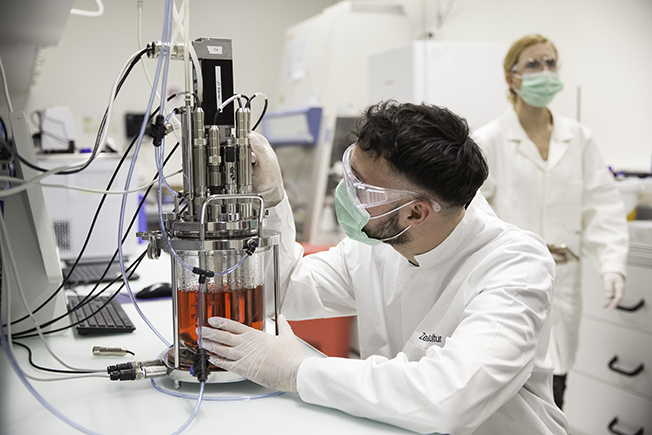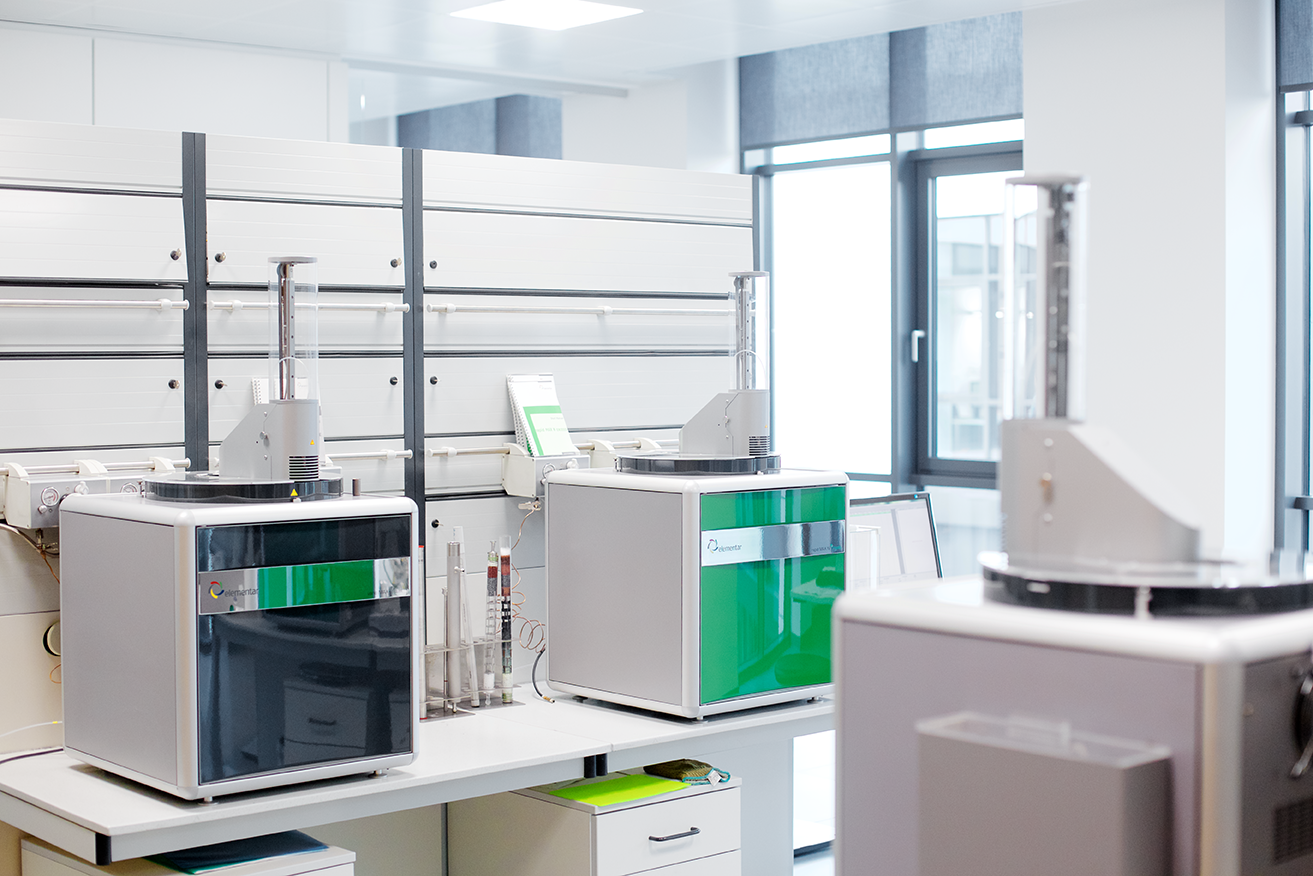

From soil to superfood: how elemental analysis is transforming plant protein research
Joseph Thomas from Elementar Americas explains how plant-based food producers can benefit from in-house protein analysis using fast, reliable, and easy-to-use nitrogen and protein analyzers

Analyzing proteins plays a pivotal role in optimizing operations throughout the entire production cycle of plant-based products, from evaluating the protein content of incoming crops to ensuring precise labeling of finished products.
However, some producers opt to send their samples to laboratories, which may result in delays and limitations on the number of samples that can be examined. Alternatively, they may rely on complex or time-consuming analyzers that necessitate intricate sample preparation procedures or demand significant technical expertise for maintenance.
Whether your goal is to internalize protein analysis, expand operations, boost productivity, or simplify procedures with an environmentally friendly and user-friendly device, the ‘rapid N exceed’ and ‘rapid MAX N exceed’ solutions from Elementar remove all barriers to entry for high-throughput protein analysis.
Origins of elemental analysis
As Joseph Thomas, CEO of Elementar Americas explains, the company’s roots in elemental analysis trace back +125 years. “The origin lies in a collaboration between Wilhelm Carl Heraeus and a group of scientists focused on analytical technology,” he reveals. “They unveiled the first modern elemental analyzer back in 1897.” That invention was later mass-produced in Hanau, Germany.
As far as product development timelines go, Heraeus introduced the ‘N-Rapid’ analyzer in 1964 – the first Dumas protein analyzer produced by Heraeus. Fast-forward to 1989, and the ‘macro N’ was unveiled by what was then known as Foss Heraeus, a JV with the Danish company Foss Electric, capable of handling large samples up to 5g.
In 1990, Thomas goes on to reveal, Dr Hans-Peter Sieper transferred the Analytical Technology business unit to a company operating independently from Heraeus – Elementar. The ‘rapid N’ was introduced in 1991, designed for fast analysis of samples of ~1mg. Then, between 2006 and 2015, Elementar also released the ‘rapid N cube’, its successor, the ‘rapid N exceed’, and its larger counterpart, the ‘rapid MAX N exceed’.
In 2017, Hans-Peter’s son, Albrecht, took over as Managing Director, in doing so continuing the tradition of an owner-managed family company.

Growing interest
Thomas has seen first-hand the growing interest from companies in the plant-based sector in his company’s products, mirrored by the meteoric rise in the sector itself.
“We’ve been providing support to plant-based food manufacturers for over a decade now,” he reveals. “But the fundamentals of crude protein analysis have remained unchanged in our approach. Whether it’s plant-based, alternative meats, or traditional foods, if you’re interested in protein analysis, we have you covered. The beauty is that we don’t need to introduce new technology to cater to plant-based foods. We’ve been relying on these foundational principles for many years.”
Asked for his view of the plant-based sector today, Thomas believes it finds itself “in a transitional phase” – somewhere between “early adoption and mainstream acceptance”.
“One aspect that remains constant – whether in the plant-based or traditional food sectors – is the importance of maximizing the protein content of incoming crops and raw materials,” he maintains. “Ensuring crops entering the production process are of excellent quality and premium in terms of protein content is vital. This high-quality input is not only necessary for achieving maximum output but also for maintaining product consistency. It’s crucial to accurately measure these qualities before they enter the production line.
“It is important to be certain that the incoming crops in your facility match their stated specifications and deliver the expected protein content or other essential values. This level of precision is critical in various phases of production.”

Quality control
Ensuring the production of top-notch plant-based food products also necessitates rigorous quality control throughout every phase of the manufacturing process. This also entails guaranteeing precise labeling of finished products in accordance with local food authority regulations.
“Labeling and regulatory compliance are paramount, and there are several critical reasons for this,” Thomas continues. “One aspect we can all agree on is the ultimate safety of consumers.”
On that note, in the USA in 1990, the FDA (through the Nutritional Labeling and Education Act) established mandatory requirements for food companies to provide detailed and consistent information about the products they manufacture. “This is reflected in the well-known black and white labels on the back of food products, which consumers rely on for crucial information,” Thomas says.
These labels cover a range of nutritional factors, including calories, fats, cholesterol, sodium, carbohydrates, proteins, minerals, and vitamins. “Food manufacturers are obligated to adhere to these regulations, and they need to ensure they can consistently and accurately determine protein levels, among other factors, using our protein analyzers,” Thomas adds.
For plant-based food producers, lab and production teams also require accurate, reproducible data to keep a watchful eye on aspects such as changes in processing, and how that could impact the final product. “I firmly believe that it’s crucial for both the production and R&D teams to have a high-capacity protein analyzer capable of unattended testing,” Thomas says. “Achieving plug-and-play functionality, especially in the field of analytical technology, may seem ambitious, but it’s the ideal scenario.
“We aim for high-volume, unattended operations with precise and reliable results,” he states. “Ultimately, we want our teams to have the autonomy to experiment and innovate in this rapidly growing space. They need the data from these experiments to optimize products effectively – speed is of the essence. Organizations need to pivot swiftly in today’s fast-paced economy. Accurate results are the key to success.”
Depending on the specific protein analyzer required, Thomas says Elementar’s solutions offer exceptional efficiency at a low cost per sample. “Some of our customers prefer unattended operations; they want the flexibility to work on other projects and run different samples without being tied to the analyzer all day. This means they can load their samples, start the process, and then focus on other tasks. Or they can load samples at the end of the day and return in the morning to find their results, making it a 24/7 operation.
Achieving plug-and-play functionality, especially in the field of analytical technology, may seem ambitious, but it’s the ideal scenario
“If you take a look inside one of our analyzers, you’ll see the level of investment we’ve made to prioritize our customers,” Thomas notes. “We’ve made maintenance tool-free, so you don’t need special equipment. We’ve designed our fittings to be easily removable by hand, eliminating the need for a tool or even a regular screwdriver.
“Our analyzer also has a small footprint, making it suitable for labs with limited space,” he says, further explaining the benefits. “Additionally, it performs full combustion analysis on the sample itself, eliminating the need for separate aliquot testing.
“Lastly, our instrumentation is eco-friendly and aligns with the principles of the plant-based food sector. We avoid using harsh and toxic chemicals in our consumables, so you don’t need extensive safety gear, like hoods, masks, or nitrile gloves, to operate it. Of course, safety in the lab is important, but we’ve minimized the use of substances like sulfuric acid commonly found in other chemical analyses on the market today.”

Thomas is more than optimistic about the future for alternative proteins, and elemental analysis will continue to have an important role. “Given the pace of competition, technological advancements, increased robustness, and the continued application of elemental analysis, it’s challenging to predict exactly where the sector will be in 2050,” he concludes. “However, it’s clear that the future holds immense potential for further expansion and development in the plant-based food industry.”
For more information about Elementar products, please click here
If you have any questions or would like to get in touch with us, please email info@futureofproteinproduction.com


%20ILVO%202.jpg)

.png)

